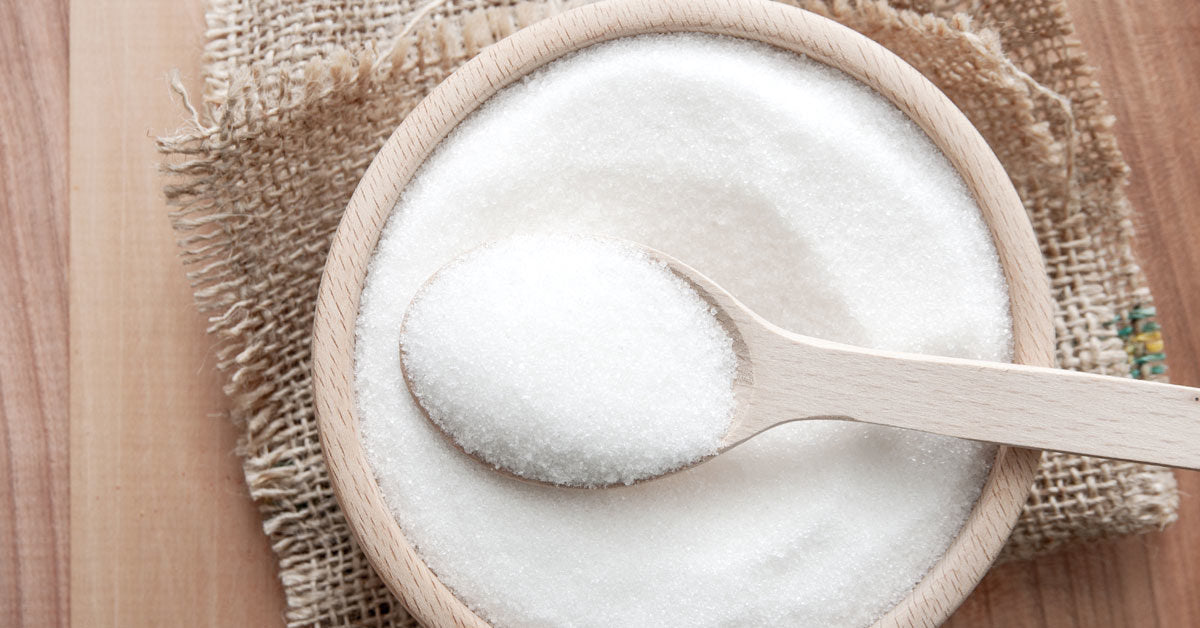In recent years, there has been a growing interest in alternative sweeteners as people look for healthier alternatives to sugar. Among these options, monk fruit sweeteners have gained popularity, and one common ingredient often found in these products is Erythritol. In this article, we’ll demystify the role of Erythritol in monk fruit sweeteners and explain why fillers are used, not just in monk fruit sweeteners, but in other popular sugar substitutes like Stevia and Splenda. We’ll also discuss when it's suitable to use a monk fruit sweetener with Erythritol and when a 100% monk fruit extract might be the better choice.
Why Use Fillers in Monk Fruit Sweeteners?
Fillers, also known as bulking agents, are substances added to sweeteners for various reasons. They serve several essential purposes:
- Bulking and Texture: Fillers add volume and texture to the sweetener, making it easier to handle and use in recipes. This is especially important in baking and cooking, where the texture and structure of the sweetener play a crucial role.
- Measuring and Substitution: Fillers help maintain a 1:1 sweetness-to-sugar ratio, making it simpler for consumers to replace sugar in their recipes. This is essential to ensure that the sweetener provides a consistent level of sweetness without compromising the taste and texture of the final product.
What is Erythritol?
Erythritol is a sugar alcohol that is naturally found in certain fruits like grapes and melons and it is often used as a filler in monk fruit sweeteners. It is also produced through a natural fermentation process, primarily involving glucose from corn starch. What makes Erythritol appealing is that it is about 70% as sweet as table sugar (sucrose) but contains only a fraction of the calories. Erythritol has virtually no effect on blood sugar levels, making it suitable for people with diabetes.
Erythritol, when combined with monk fruit sweeteners, serves multiple vital functions, simplifying the use of these sweeteners for the average consumer. First and foremost, it acts as a bulking agent, imparting the necessary volume and texture that monk fruit extract alone lacks. This attribute simplifies the process of measurement and substitution for sugar in various recipes. Additionally, Erythritol provides a mouthfeel akin to sugar, ensuring that your sweetened dishes or beverages retain a familiar and satisfying texture.
When to Choose Monk Fruit Sweeteners with Erythritol
Monk fruit sweeteners with Erythritol are an excellent choice in many situations. Here are some scenarios where they make sense:
- Baking and Cooking: If you're planning to use monk fruit sweetener in baked goods or recipes where sugar plays a structural role, monk fruit sweeteners with Erythritol are a better option. They provide the necessary texture and volume to achieve the desired results.
- One-to-One Sugar Replacement: For recipes that require a 1:1 sugar replacement, Erythritol helps maintain the right sweetness level without drastically altering the recipe.
When to Go for 100% Monk Fruit Extract
Having said that, there's a few scenarios where it might be best to use a 100% monk fruit extract:
- You care about sweetness, not texture: If you don't need to replace sugar's texture, there's no need to use a filler. This is usually the case for drinks (coffee, tea, juices, etc.).
- Simple Ingredients: When you're all about keeping it simple and clean, 100% monk fruit extract is as pure as it gets. You won't be taking any unnecessary fillers.
- Savings: Extracts are usually a more affordable source of sweetness relative to blends. Although extracts are more expensive by weight due to their concentration, the cost per teaspoon of sweetness is usually lower when purchasing pure extracts
- Intense Sweetness Seeker: Some folks just love the intense sweetness of monk fruit extract without any interference. If you're one of them, go for the pure stuff.
- Sweetness Customization: When you want to fine-tune the level of sweetness in your recipes, using 100% monk fruit extract gives you more control.
In conclusion, Erythritol serves a valuable role as a filler in monk fruit sweeteners, enhancing their versatility and making them more user-friendly in various applications. Monk fruit sweeteners with Erythritol are excellent choices for baking, calorie reduction, and when you desire a more balanced sweetness. On the other hand, 100% monk fruit extract is ideal for those that only care about replacing sugar's sweetness, not texture. When selecting a monk fruit sweetener, consider your individual preferences and dietary goals to determine the best option for your needs. Regardless of your choice, monk fruit sweeteners provide a healthier alternative to sugar without sacrificing taste or sweetness.


Share:
Understanding Monk Fruit as a Sweetener
Monk Fruit Sweeteners: The Ultimate Guide